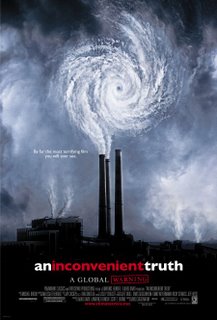The nuclear decision matters, but it's important to read beyond the headlines of today's report.
By John Vidal
The Guardian Online
Nuclear power is back. Well, it was never much of a secret that Mr Blair was going to opt for the most controversial power source that the world has ever known, but the official decision is still significant.
It means that the British nuclear industry, which has self-confessedly botched its finances for two generations and left future governments with a £70bn decommissioning bill as well as a £10bn mountain of radioactive waste to clear up, can carry on as if its sorry past had never happened.
It means that the lights will still be on in 15 years' time, but it also means that future generations will question what our fixation in the early 21st century was with a technology born of a dreadful war 60 years war before, and which has needed unimaginable subsidies to survive ever since.
When in 50 years time our grandchildren start to clear up the mess that this new generation of nuclear power will make, they may well wonder if we saw things clearly. Did we really need to replace nuclear power with nuclear, they may mutter as they keep paying the bills and filling up the caverns with the waste? How come this government surrendered to the interests of a few mighty industrial conglomerates?
But this energy review, the second in three years, is far more than a justification of nuclear power. It may also be justly remembered as the moment when an oil-obsessed, energy-profligate department of industry read the runes and began a slow turn towards creating a low-carbon economy in response to climate change and future energy shortages.
And it could also mark the moment when the penny finally dropped across all government that it's not efficient to pollute, and that there's more money to be made in saving energy than in generating it. Even if there are no firm policy commitments, in that sense the review is a triumph.
Increasing the renewable electricity target to 20% by 2020 is still nowhere near enough to meet the real challenge of climate change, and increasing the biofuel target to 10% is no more than Brussels already demands, but it is the tone of the report that marks a real change. The language is one of potential and possibility, for the individual as much as for business and local government.
For the first time, the national emphasis has been put on the decentralisation of energy, away from the Stalinist-style central planning that has marked energy generation for the last 60 years. From now on the individual household or business will be encouraged to generate its own power with micro-generation and to save energy as never before. The possibility is even held out of emission trading between individuals. In energy terms, all this is pretty revolutionary, the beginning of a green philosophical change as significant as Margaret Thatcher's determination to extend home ownership to everyone.
But there are great dangers implicit in the review, too. New planning laws will be needed to overrule objectors, whether of onshore wind power or nuclear. We can expect bitter battles on the hillsides and in the town halls. The review may lead directly to mega-schemes like a Severn barrage, which will be massively opposed. The trade-off in visual terms may be dramatic. Great swathes of Britain may be put to growing energy crops. Hillsides may become crowded with turbines. Forcing Scotland and Wales to bow to nuclear and wind power will be divisive.
But, in the end, the whole stated point of the review was to chart ways forward to stave off climate change. As the Tyndall Centre for Climate Change Research wisely remarked this afternoon, this was not so much a review of energy so much as one of electricity generation. It deliberately did not address transport, which uses one third of all the energy we use, and it barely got to grips with energy saving.
Seen like this, the decision to continue with nuclear power - which actually only provides 3.6% of the energy we use to move our machines and ourselves and to light and heat and cool our buildings - is pretty marginal.
 After seeing droves of people waiting to watch Pirates of the Caribbean last Saturday, I wondered why not many were as enthusiastic to watch Al Gore's movie, An Inconvenient Truth? Ok, so Al Gore may not be as appealing to young teens, or even to adults as hunky Johnny Depp, dreamy Orlando Bloom, gorgeous Keira Knightly or some sweet special effects, but if Gore's movie does not stir a fire under one's ass I don't know what will.
After seeing droves of people waiting to watch Pirates of the Caribbean last Saturday, I wondered why not many were as enthusiastic to watch Al Gore's movie, An Inconvenient Truth? Ok, so Al Gore may not be as appealing to young teens, or even to adults as hunky Johnny Depp, dreamy Orlando Bloom, gorgeous Keira Knightly or some sweet special effects, but if Gore's movie does not stir a fire under one's ass I don't know what will.